This article was co-authored by Liana Georgoulis, PsyD. Dr. Liana Georgoulis is a Licensed Clinical Psychologist with over 10 years of experience, and is now the Clinical Director at Coast Psychological Services in Los Angeles, California. She received her Doctor of Psychology from Pepperdine University in 2009. Her practice provides cognitive behavioral therapy and other evidence-based therapies for adolescents, adults, and couples.
There are 19 references cited in this article, which can be found at the bottom of the page.
This article has been viewed 17,686 times.
If you think you’re a narcissist or have been diagnosed with narcissistic personality disorder (NPD), you may struggle with self-esteem, substance abuse, or have trouble making and maintaining healthy relationships. It can be hard managing the symptoms of narcissism because they seem so ingrained in who you are and, oftentimes, narcissism comes with co-existing conditions like depression, anxiety, and substance abuse. However, getting professional help and increasing your emotional intelligence (that is, your capacity for introspection) can make you aware of your unhealthy patterns and give you the tools you need to be a better partner or friend to the people you care about.[1]
Steps
Getting Professional Help
-
1Talk to a licensed therapist about overcoming your narcissism.[2] Most narcissists won't get professional help, so if you've made the choice to do so, good for you! Talk to your therapist about how your narcissistic behaviors have damaged your relationships and your relationship to yourself. Think about what goals you have that the therapist can help you achieve.[3]
- For example, you might say, "I want to go to therapy to help increase my self-esteem. That way, I won't feel like I need so much attention from others in order to feel good about myself." Another goal might be, "I want to communicate better with my partner."
- If you have (or suspect you have) co-occurring issues like depression or anxiety, ask your therapist how you can reframe your thought patterns to get some relief from those extra symptoms that exacerbate or fuel your narcissistic behaviors.[4]
- If the cost of one-on-one therapy is too expensive, consider going to a free support group for related issues. For instance, there’s Co-Dependents Anonymous (CoDA), Depression and Bipolar Support Alliance (DBSA), Alcoholics Anonymous (AA), Narcotics Anonymous (NA), Neurotics Anonymous (N/A), Overeaters Anonymous (OA), and Workaholics Anonymous (WA).
-
2Take medication for co-occurring issues like depression or anxiety. There are no drugs to treat NPD, but you can treat co-occurring disorders like depression, anxiety, bipolar disorder, ADD, ADHD, or OCD behaviors with medication.[5] If your psychologist diagnoses you with one of these common co-occurring disorders, they'll refer you to a psychiatrist to get a prescription. Take the recommended dosage per your doctor’s instructions and take note of how you feel after 1-2 weeks of being on them.[6]
- Your psychiatrist will likely have you come in every 2 weeks when you're starting a new prescription to see if the medication is having any effect. They may increase your dosage after a month or so and recommend monthly appointments to check-in.
Advertisement -
3Address any problems with substance abuse that exacerbate your behaviors. If you're more prone to be in narcissistic-mode when you're drunk or high, that's definitely something you need to address. Be honest with yourself regarding how much you use a certain drug and, if necessary, sign up for a part-time or full-time rehabilitation program.[7]
- Rehabilitation doesn't mean your normal life has to stop. There are tons of intensive day programs to help you cope with your addiction. However, know that in-patient rehab may be necessary if your addiction is so advanced that you've lost any sense of control. A psychologist or doctor can help you make the decision that's right for you.
- Alcohol or drugs can exacerbate certain symptoms like grandioseness, unyielding talkativeness, aggression, entitlement, and exploitative or manipulative behaviors.
-
4Stick with the treatment program you choose. It's common for narcissists to quit therapy or any other program before they've addressed important underlying issues that led to their behaviors. It's hard work, but stick with it! In some cases, it takes 5 to 10 years of therapy for someone to get a handle on their NPD. While everyone's journey is different, you can expect to pass through (and, oftentimes, bounce back and forth between) these stages during therapy:[8]
- Experiencing relief from your symptoms (e.g., depression, anxiety, mood swings, anger outbursts, or other co-existing issues)
- Understanding your triggers to avoid future problems or pain
- Recognizing your current coping mechanisms and when/why they originated (e.g., childhood or trauma)
- Creating new coping mechanisms
- Establishing new habits (and using constructive coping skills)
Improving Your Emotional Intelligence
-
1Educate yourself on narcissism and NPD. Read up on the disorder and reflect on whether you meet some or all of the criteria. Pay special attention to how narcissism forms and how it impacts relationships with yourself and others so you can get a better handle on how to resist feeding those urges.[9]
- Buy or rent books or audiotapes or just browse the web to read all kinds of studies and articles about NPD.
- You might check out some books on how to recover from narcissism. Look for titles written by doctors and psychologists (the author's name will have "PsyD," "Ph.D.," or "PsyaD" on the end).
-
2Check in with yourself whenever you feel envious or envied. Feeling envious or feeling like the object of everyone’s envy are classic signs of narcissism, so put a mental bookmark on the times when you’re feeling envious or envied. It requires slowing down in the moment and reflecting on your core beliefs about yourself and others that play into why you’re feeling this way. It’s not easy to do, but use these feelings as a trigger for introspection. You might ask yourself the following questions:[10]
- Feeling envy:
What do they have that I want?
What insecurity or core belief about myself does this match up with?
What am I afraid of losing? Control? Status? Relationships? - Feeling envied:
Why would they feel envious of me (intelligence, success, beauty, charm, talent)?
Do they actually lack these qualities or am I projecting my own issues and values onto them?
What other emotions does this feeling ignite? Guilt? Feeling fraudulent? Elation?
- Feeling envy:
-
3Manage any unrealistic or over-the-moon expectations. If you’re hyper-focused on success, power, beauty, and love and won’t settle for anything other than the best, reframe your outlook to be more realistic. Try journaling about your expectations in each of these sectors and ranking each one on a scale from 1 to 10 (1 being grounded, realistic, and achievable and 10 being unrealistic and grandiose). If you feel comfortable doing so, you can also ask a therapist or trusted friend to rate these expectations to help you get a different perspective.[11]
- For example, an unrealistic expectation would be: “I will be the richest and most famous, beautiful woman in America and fall in love with a movie star.” A more realistic expectation might be: “I will work as hard as I can to live comfortably, keep myself in good physical shape, find love, and work hard to keep that love.”
- The obsession with these things often leads high-functioning narcissists to be workaholics, overly vain, or codependent partners.
- If you feel entitled to a life of grandeur to the point that you can’t keep a steady job or relationship, it’s best to seek out a therapist who can help you break those self-sabotaging patterns.
-
4Expand your capacity for empathy by putting yourself in another's shoes. Whether you’re in an argument with someone or just having a regular conversation, try to imagine yourself in their skin. You can even do this with people far away or with people you’re just passing on the street. The more you try to envision how others might be feeling and internalizing those feelings as your own, the more empathetic you’ll learn to be. To help you step into another’s shoes for a moment, ask yourself the following questions:[12]
- What might they be feeling right now? Why? How does that feeling feel in their body (e.g., chest tightness, heavy shoulders, forehead pressure)?
- What are their motivations for saying or doing certain things? What feelings might lead them to act in certain ways (e.g., fear, excitement, anxiety)?
- What core beliefs might they hold about themselves due to the circumstances they’re in?
- Which roles do they play in the lives of others (e.g., confidant, artist, healer, leader, nurturer) and how does that inform their self worth?
-
5Get your anger in check if that's an issue for you. If you’re prone to outbursts of rage or anger, it can be toxic to your relationships and yourself. Practice mindful breathing to help you come down from a spell of rage or work with a therapist to help you utilize coping tools to cool the flames of anger. If you’re in an argument with someone, use “I” statements to help you express your feelings without lobbing personal attacks and fueling the flames.[13]
- A good format to go by is: “I feel _____ when _____.” For instance, you might say, “I feel angry when you tell me that my work isn’t good enough.”
- If you’ve ever been so angry that you resort to physical violence, leave the situation and only come back when you’re feeling calm and capable of using your words. Go for a walk if you need to expend some of that angry energy.
Relating to Others
-
1Practice active listening. If you're a narcissist, it's easy to tune out what others are saying, interject with your own opinions, or concoct what you're going to say next while someone is talking.[14] Instead of doing all that work in your head, empty your mind and focus solely on the words they’re saying.[15]
- Give the other person visual cues that you're listening and present like nodding or saying "uh-huh," "right," or "okay."
Tip: Be mindful of your body language when you're listening. Make sure your body and face are turned toward the person and that you're making eye contact. Lean your upper body inward a little and avoid crossing your arms and legs.[16]
-
2Talk less about yourself and be curious about others. Take note of how often you start sentences with "I," "me," or "my." Flip the conversation towards the other person by asking open questions so they get to talk about themselves instead.[17]
- It's hard to notice mid-convo when you've made the conversation about you, so check in with yourself whenever you've just finished a conversation where you became the star. Try to pinpoint when and how you made the conversation about you so you can avoid doing that in the future.
- For instance, when someone tells you a story about losing a dog, ask questions to push the story along and let the person express how they're feeling. Don't flip the convo to and give a whole monologue about your dog or past experiences with dogs.
-
3Show genuine appreciation for others and give praise without ulterior motives. Resist the urge to brag about your accomplishments and focus on the achievements of others instead. Don't try to one-up someone after they've just expressed how happy they are about something they did or earned. Words like, "Well done!" "Way to go!" and "Congratulations, I'm happy for you!" go a long way and can tighten your bond with friends and family.[18]
- For example, if your sister shares some exciting news with you that she's gotten a raise, don't reply by stating how much you make or how you've just gotten a promotion. Instead, say something like, "That's great to hear! I'm happy for you!" and leave it at that.
- If you find yourself wanting to praise others to win their affection or to get something you want from them down the line, hold off and say nothing. If you’re working with a therapist, that's something to investigate with them.
-
4Learn to accept criticism from others with grace. Nobody likes being criticized, and if you're a narcissist, it might stoke your temper and prompt you to fire back with an insult. When someone gives you criticism, consider that something you did or said may have been uncalled for. It’s hard to admit to being wrong or mistaken, but kindly remind yourself that nobody's perfect![19]
- For instance, if your partner tells you that you speak too loud at the dinner table and a tinge of aggression springs up in you, take a moment to calm yourself. Reply with something like, "I'm sorry, I'll try to work on that." Make sure there's no sarcasm or aggression in your tone.
- You might think any criticism (construction or not) is a personal attack on you, but it's not. Think of it as discouraging certain behaviors. You're not a bad person—the behavior that you acted out was a not-so-great choice.
- If someone is criticizing you in the form of a personal attack, disengage from the conversation. It can be hard to do if you're used to playing verbal ping pong, but exiting the situation will help you overcome your narcissistic tendencies and any co-existing anger issues in the long run.
-
5Distance yourself from enablers if necessary. Consider your list of friends and family members who might be feeding into your narcissistic behaviors. These are people who give you what your ego wants all the time and, oftentimes, are people that you’ve manipulated in the past for your own benefit. If you think they’ll be understanding, let them know that you’re making some lifestyle changes and want to relate to them differently. If they’re narcissists themselves, you may have to cut off the relationship altogether.[20]
- An example of an enabler might be a parent who does nothing but heap praise upon you even for the littlest things. Or, an enabler might be a friend who allows you to manipulate them even when it’s obviously not in their best interest.
- You don’t have to distance yourself from all of your friends even if you think your narcissistic behaviors have impacted the relationship in some way. It’s important to keep a solid foundation of friends for social support, just put some distance between you and the ones that aren’t so healthy to be around (that is, people with codependent tendencies or substance abuse problems).
-
6Limit your social media usage or delete your profiles and apps. If you thrive off of the attention you get from your posts on Facebook, Instagram, or Twitter, consider deleting the accounts. Try to think of ways you can validate your self worth without the input of others.[21]
- If you want to keep your accounts or have to for your line of work, refocus the content that you post or like to be less about you and more about something you care about. For instance, instead of posting photos of yourself on Instagram, post about a cause that’s particularly dear to you or a recent event that struck a chord.
- The idea is to not use media as a “look how great I am” album or a diary to garner pity or attention from others. Try to think of how you can use social media to form and nurture genuine relationships with others.
Tip: If you suspect you are addicted to social media, talk to a licensed psychologist about what you can do when you’re tempted to log in. Cleaning, playing music, reading a book, or taking a soothing bath are great tools of distraction in this case! You can also use applications like SelfControl, AppBlock, Flipd, or Offtime that block the app or website after a certain period of time.[22]
Expert Q&A
-
QuestionHow can I go to therapy if I am embarrassed to ask for help?
 Liana Georgoulis, PsyDDr. Liana Georgoulis is a Licensed Clinical Psychologist with over 10 years of experience, and is now the Clinical Director at Coast Psychological Services in Los Angeles, California. She received her Doctor of Psychology from Pepperdine University in 2009. Her practice provides cognitive behavioral therapy and other evidence-based therapies for adolescents, adults, and couples.
Liana Georgoulis, PsyDDr. Liana Georgoulis is a Licensed Clinical Psychologist with over 10 years of experience, and is now the Clinical Director at Coast Psychological Services in Los Angeles, California. She received her Doctor of Psychology from Pepperdine University in 2009. Her practice provides cognitive behavioral therapy and other evidence-based therapies for adolescents, adults, and couples.
Licensed Psychologist Understand that everyone has struggles, painful emotions, difficult experiences, worries, fears, and doubts. We're not adequately taught, in my opinion, what it means to navigate the inner workings of our mind and our emotions. Therapy can be an empowering tool in developing self awareness and moving forward in a different, new way.
Understand that everyone has struggles, painful emotions, difficult experiences, worries, fears, and doubts. We're not adequately taught, in my opinion, what it means to navigate the inner workings of our mind and our emotions. Therapy can be an empowering tool in developing self awareness and moving forward in a different, new way. -
QuestionDoes narcissism need to be treated?
 Liana Georgoulis, PsyDDr. Liana Georgoulis is a Licensed Clinical Psychologist with over 10 years of experience, and is now the Clinical Director at Coast Psychological Services in Los Angeles, California. She received her Doctor of Psychology from Pepperdine University in 2009. Her practice provides cognitive behavioral therapy and other evidence-based therapies for adolescents, adults, and couples.
Liana Georgoulis, PsyDDr. Liana Georgoulis is a Licensed Clinical Psychologist with over 10 years of experience, and is now the Clinical Director at Coast Psychological Services in Los Angeles, California. She received her Doctor of Psychology from Pepperdine University in 2009. Her practice provides cognitive behavioral therapy and other evidence-based therapies for adolescents, adults, and couples.
Licensed Psychologist You may not need treatment for narcissism, but it can help you. Going to therapy may help you improve your relationships and overcome problems you're having because of your narcissism. If you have comorbid conditions, like depression and anxiety, treatment can be a big help. Your doctor may even prescribe medications to help with your depression or anxiety, if necessary.
You may not need treatment for narcissism, but it can help you. Going to therapy may help you improve your relationships and overcome problems you're having because of your narcissism. If you have comorbid conditions, like depression and anxiety, treatment can be a big help. Your doctor may even prescribe medications to help with your depression or anxiety, if necessary.
Warnings
- If you have suicidal feelings, call a supportive friend, talk to a therapist, or call a suicide hotline.[24]⧼thumbs_response⧽
References
- ↑ Liana Georgoulis, PsyD. Licensed Psychologist. Expert Interview. 6 September 2018.
- ↑ Liana Georgoulis, PsyD. Licensed Psychologist. Expert Interview. 6 September 2018.
- ↑ https://my.clevelandclinic.org/health/diseases/9742-narcissistic-personality-disorder
- ↑ Liana Georgoulis, PsyD. Licensed Psychologist. Expert Interview. 6 September 2018.
- ↑ Liana Georgoulis, PsyD. Licensed Psychologist. Expert Interview. 6 September 2018.
- ↑ https://www.ncbi.nlm.nih.gov/pmc/articles/PMC1857317/
- ↑ https://www.ncbi.nlm.nih.gov/pmc/articles/PMC2669224/
- ↑ https://www.psychologytoday.com/us/blog/understanding-narcissism/201908/10-stages-in-the-treatment-narcissistic-disorders
- ↑ https://www.helpguide.org/articles/mental-health/emotional-intelligence-eq.htm
- ↑ https://www.psychologytoday.com/us/conditions/narcissistic-personality-disorder
- ↑ https://www.psychologytoday.com/us/conditions/narcissistic-personality-disorder
- ↑ https://www.ncbi.nlm.nih.gov/pmc/articles/PMC4415495/
- ↑ https://www.psychologytoday.com/us/blog/communication-success/201807/8-signs-narcissistic-rage
- ↑ Liana Georgoulis, PsyD. Licensed Psychologist. Expert Interview. 6 September 2018.
- ↑ http://www.columbia.edu/~da358/publications/listening_influence.pdf
- ↑ https://today.duke.edu/2019/06/how-practice-active-listening
- ↑ https://counseling.uoregon.edu/magic-opposite-action
- ↑ https://www.psychologytoday.com/us/blog/evolution-the-self/201808/the-gullibility-the-narcissist-what-you-need-know
- ↑ https://www.psychologytoday.com/us/blog/evolution-the-self/201110/the-narcissists-dilemma-they-can-dish-it-out
- ↑ https://pro.psychcentral.com/recovery-expert/2016/07/the-narcissists-flying-monkeys/
- ↑ https://www.sciencedaily.com/releases/2017/04/170418094255.htm
- ↑ https://pubmed.ncbi.nlm.nih.gov/27072491/
- ↑ https://www.health.harvard.edu/blog/mindfulness-meditation-may-ease-anxiety-mental-stress-201401086967
- ↑ https://www.ncbi.nlm.nih.gov/pmc/articles/PMC5191918/

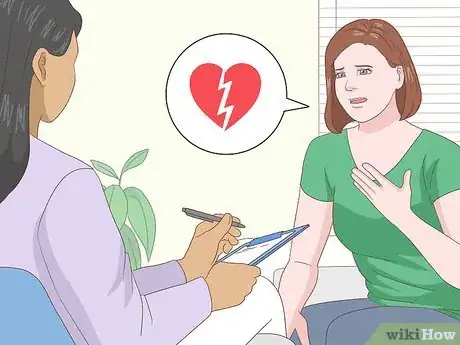
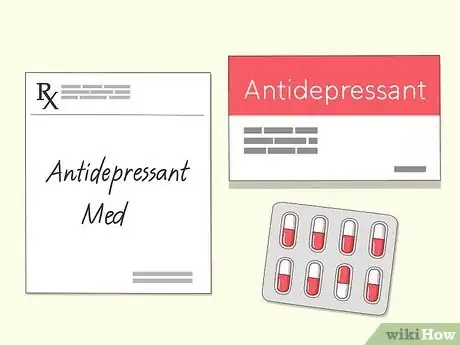
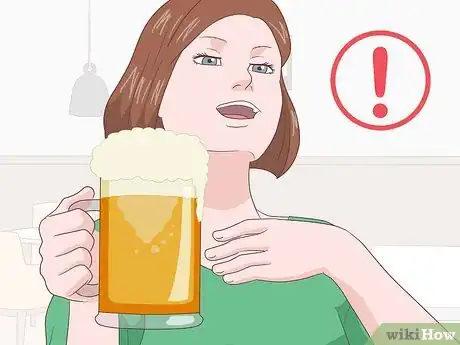
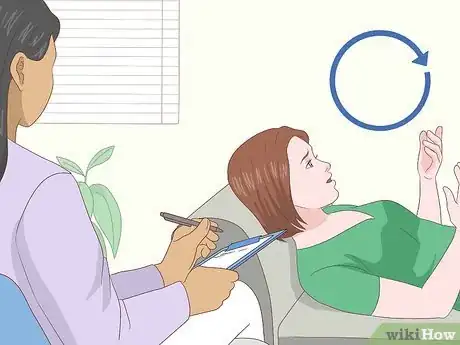
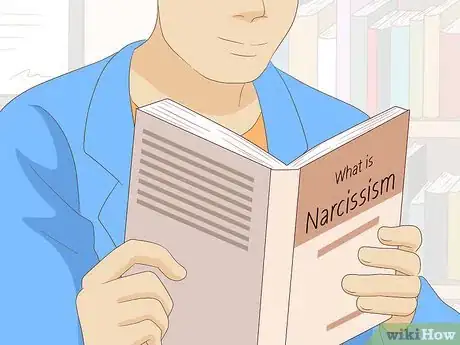

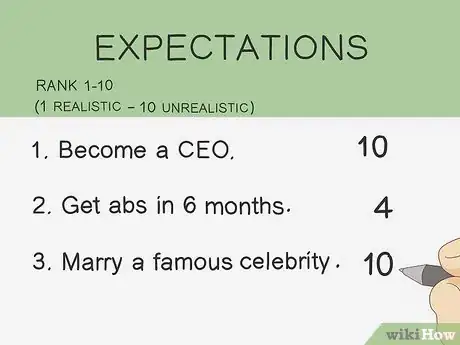

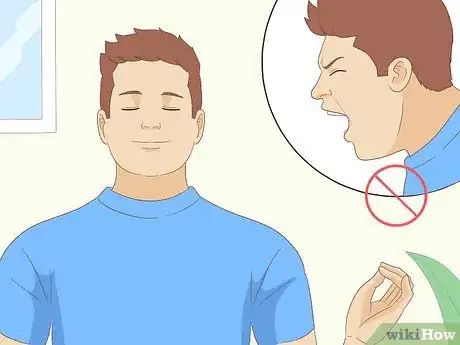



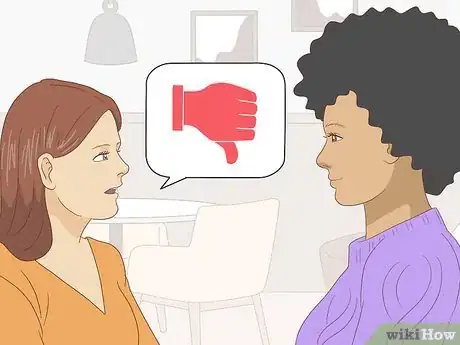
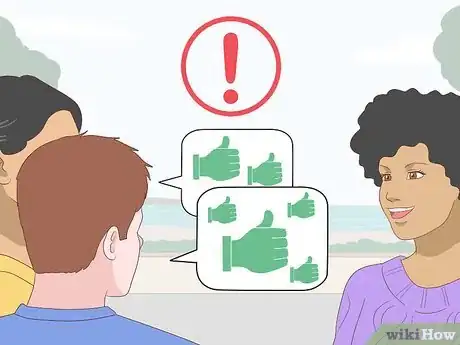
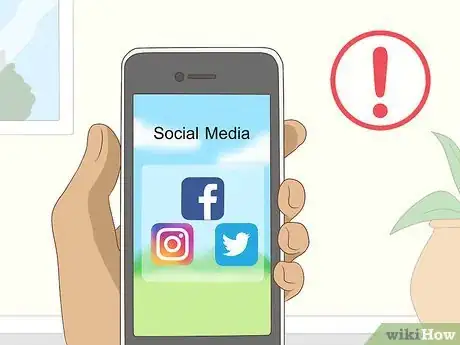




























































Medical Disclaimer
The content of this article is not intended to be a substitute for professional medical advice, examination, diagnosis, or treatment. You should always contact your doctor or other qualified healthcare professional before starting, changing, or stopping any kind of health treatment.
Read More...